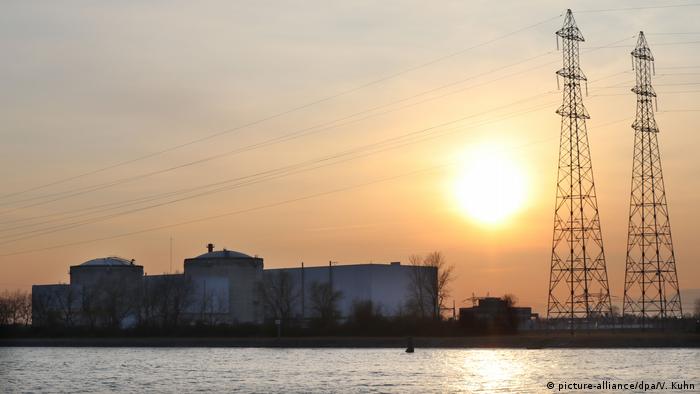Fessenheim (France) (AFP)
French state-owned energy giant EDF on Saturday began shutting down the country's oldest nuclear power plant after 43 years in operation.
EDF said it had disconnected one of two reactors at Fessenheim, along the Rhine near France's eastern border with Germany and Switzerland, at 2:00 am (0100 GMT) in the first stage of the complete closure of the plant.
The second reactor is to be taken off line on June 30 but it will be several months before the two have cooled enough and the used fuel can start to be removed.
The removal of the fuel is expected to be completed by the summer of 2023 but the plant will only be fully decommissioned by 2040 at the earliest.
Shutting down Fessenheim became a key goal of anti-nuclear campaigners after the catastrophic meltdown at Fukushima in Japan in 2011.
Experts have noted that construction and safety standards at Fessenheim, brought online in 1977, fall far short of those at Fukushima, with some warning that seismic and flooding risks in the Alsace region had been underestimated.
Despite a pledge by ex-president Francois Hollande just months after Fukushima to close the plant, it was not until 2018 that President Emmanuel Macron's government gave the final green light.
"This marks a first step in France's energy strategy to gradually re-balance nuclear and renewable electricity sources, while cutting carbon emissions by closing coal-fired plants by 2022," Prime Minister Edouard Philippe said earlier this week.
France will still be left with 56 pressurised water reactors at 18 nuclear power plants -- only the United States has more reactors, at 98 -- generating an unmatched 70 percent of its electricity needs.
The government confirmed in January that it aims to shut down 12 more reactors nearing or exceeding their original 40-year age limit by 2035, when nuclear power should represent just 50 percent of France's energy mix.
But at the same time, EDF is racing to get its first next-generation reactor running at its Flamanville plant in 2022 -- 10 years behind schedule -- and more may be in the pipeline.
© 2020 AFP
France shuts down first reactor of Fessenheim nuclear plant near German border
French energy company EDF has confirmed that it has turned off one reactor of its oldest nuclear power plant. The plant, located directly on the border to Germany,
has drawn frequent protests in recent years.

EDF SA, a French energy company, said that it had completed the shut down of one reactor at its oldest nuclear power plant in Fessenheim near the border of Germany. The nuclear power plant's second and last reactor will be shut down on June 30.
The company told media outlets that the 900-megawatt reactor's shutdown began at 8:30 pm on Friday and ended in the small hours of Saturday. The shut down was completed normally, but it was an emotional moment for those in the control room, according to EDF. Around 100 people, including employees, reportedly protested against the shutdown.
Germn and Swiss officials have long demanded that French energy officials close the aging Fessenheim nuclear power plant, which is located on the border of France near Germany and Switzerland, near Freiburg in southwestern Germany.
Read more: Reports: Fessenheim nuclear accident played down by authorities
"The time has finally come," said German Environment Minister Svenja Schulze on Friday in Berlin, adding that shutting down Fessenheim would make Germany "safer."
Schulze also said that Germany would keep lobbying its neighbors to commit to phasing out nuclear power.
"Nuclear power is not a climate savior. It is risky, expensive and leaves behind radioactive waste for thousands of generations."
A 'historic step'
French Energy Minister Elisabeth Borne has called the shutdown a "historic step," as it is the first time one of France's 58 nuclear reactors has been permanently taken off the country's power grid.
France gets about 75% of its electricity from nuclear plants, but many are aging. The country has set a target of reducing its nuclear energy dependence to 50% by 2035 by bringing in more renewable power.
Read more: Germany shuts down atomic plant as nuclear phase-out enters final stretch
Following the Fukushima nuclear disaster in 2011, German environment officials concluded that although German facilities were better prepared for disaster than the Japanese, Germany would revert to a previous policy — briefly overturned by Angela Merkel prior to Fukushima — of shutting down all nuclear power plants within around 10 years.
There are currently six nuclear power plants operating in Germany: Grohnde and Emsland in Lower Saxony, Brokdorf in Schleswig-Holstein, Isar 2 und Grundremmingen in Bavaria and Neckarwestheim 2 in Baden-Württemberg.
The remaining reactors in Germany are all scheduled to be shut down by the end of 2022.


No comments:
Post a Comment